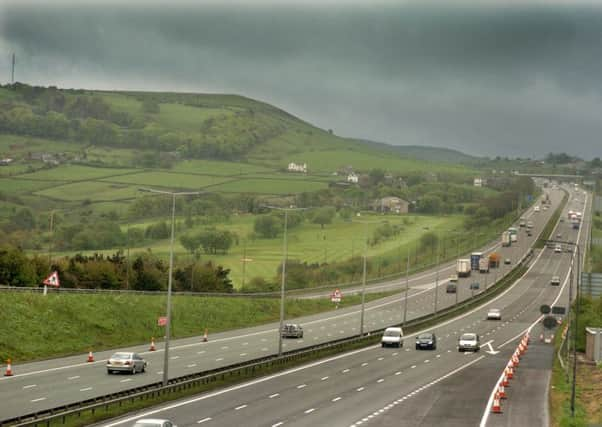Chris Haskins: Muddle and confusion in UK’s drive for devolution


Most of the discussion has concentrated on infrastructure, but whilst in the run up to the general election, many proposals have been put forward – for example, rail electrification, further investment on the M62, and flood protection on the Humber – they would all continue to be managed by Whitehall. A £200m investment in Manchester University is a Government decision and has nothing to do with political devolution.
The plans for devolution in Manchester include more power over transport, housing, planning and skills, but they are conditional on local politicians agreeing to have an elected mayor. Leeds and Sheffield do not appear enthusiastic about this idea.
Advertisement
Hide AdAdvertisement
Hide AdThere seem to be no plans for Liverpool, Newcastle and Hull, and no discussion about what to do with the millions of people who do not belong to a city region.
Combined authorities have been established in Manchester, Leeds, Sheffield, Liverpool and Newcastle because Whitehall believes that they make sense for economic reasons.
However relations between the relevant local authorities are delicate and it has so far been impossible to get the necessary agreement to go forward with a combined authority for the Humber.
All of which has created muddle and confusion. It is worth recalling that until the Second World War, English local authorities had extensive devolved responsibilities for health, education infrastructure, social services and planning.
Advertisement
Hide AdAdvertisement
Hide AdAlthough on a modest scale compared with today, the system worked well. The 19th century English municipal authorities’ success in transforming public health, education and the railways were the envy of the world. Significantly the local business community played a key role in these developments, whether investing in the railways or providing the necessary finance (through local taxation) to carry out ambitious public works.
But since the war, Britain has unwisely embarked on an extensive process of centralising power in London and eroding local social and economic accountability.
The 1945 Labour government believed that their socialist agenda required national institutions and controls to ensure fairness and consistency across the country. Later on, Mrs Thatcher was determined to cut to size troublesome leftish local authorities like Greater London and Sheffield. The attempt by Blair to establish regional political assemblies never got off the ground.
Experience elsewhere suggests that meaningful devolution of power only works if two key conditions are met – size and public engagement.
Advertisement
Hide AdAdvertisement
Hide AdScotland has a population of 5.3 million which is passionately Scottish. The Republic of Ireland is similar. The average size of a US State is about seven million and people are very “state–proud”. The problem with England is that there are only two sizable regions where these criteria are met. London has eight million people and a mayor with whom people identify. Yorkshire, with a population of 5.3 million, also has a strong popular identity, except of course for the half a million people of Northern Lincolnshire.
The Scottish situation may have altered perceptions in Yorkshire, but I would not suggest a return to regional assemblies. Instead, I propose a federation of Yorkshire Local Enterprise Partnerships should be created. This body would be large enough to assume substantial responsibility for economic development.
If this devolution of power is to be substantial, the Yorkshire and Humber Federation must demonstrate competency and accountability and take a Yorkshire-wide approach.
The Government seems prepared to take a piecemeal approach to devolution – Manchester is being singled out for special treatment – so a “Yorkshire” approach should be acceptable.
Advertisement
Hide AdAdvertisement
Hide AdMeanwhile the Yorkshire LEPs have far less resources than the old regional development agency and their impact is bound to be more modest as a result. In addition to the major public sector decisions being taken in Whitehall, another problem is that most of the big private sector investment decisions are taken by multi-national companies based in London and beyond.
Fifty years ago, great companies like Rowntrees in York, Asda in Leeds and Reckitt and Coleman in Hull had their headquarters deeply embedded in local communities where big decisions were taken. Now the big decisions are taken in Switzerland, Arkansas and London. Very often the English subsidiary of a multi-national is competing for funds with a subsidiary of the same company in another country.
Despite this, the four LEP economies are doing relatively well. Unemployment is falling. The service industries in Leeds continue to thrive, advanced manufacturing activities in Sheffield are doing well, the renewable energy industry around the Humber is about to take off and York is the most prosperous city in England after London. But Yorkshire should envy the capacity of Scotland and Wales to control so much more of their own destinies.
Chris Haskins is a Labour peer and chairman of the Hull and Humber LEP.